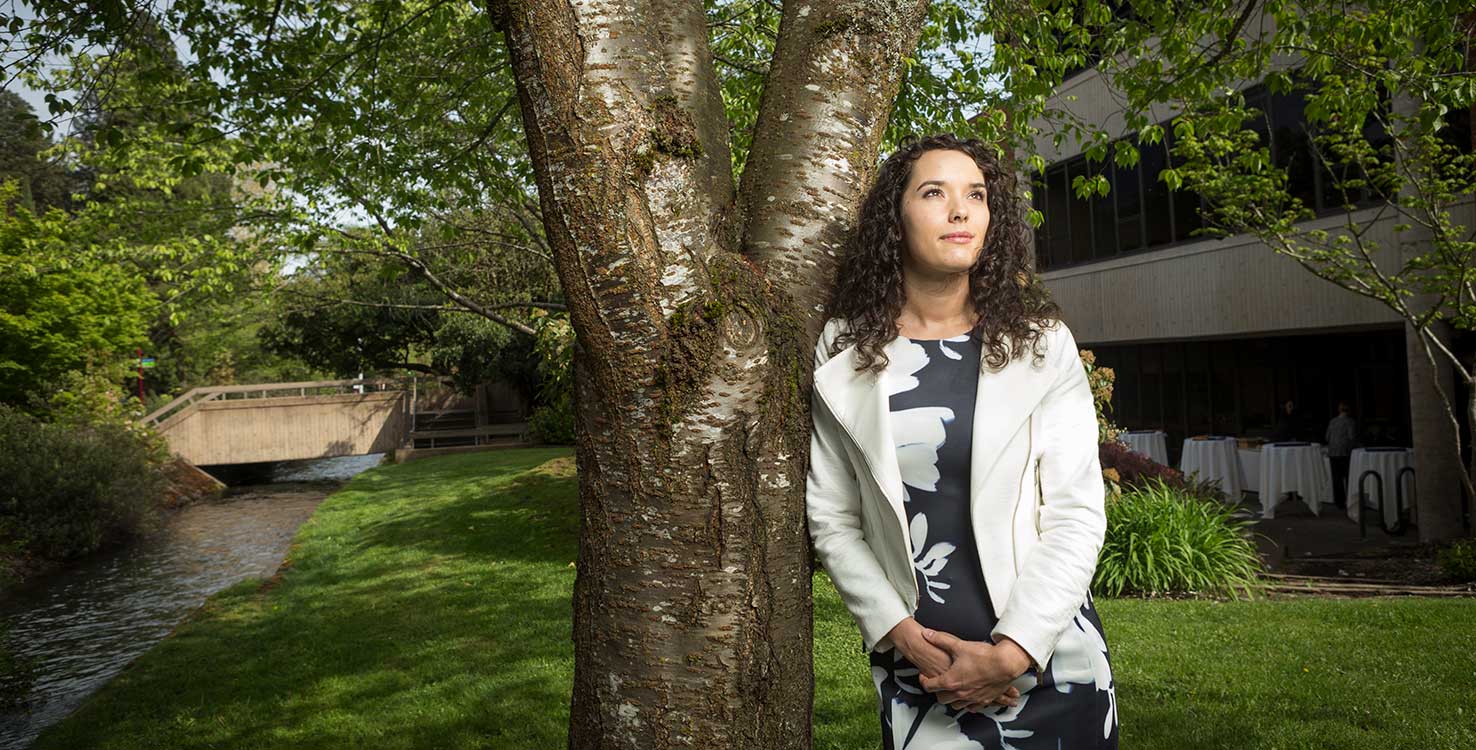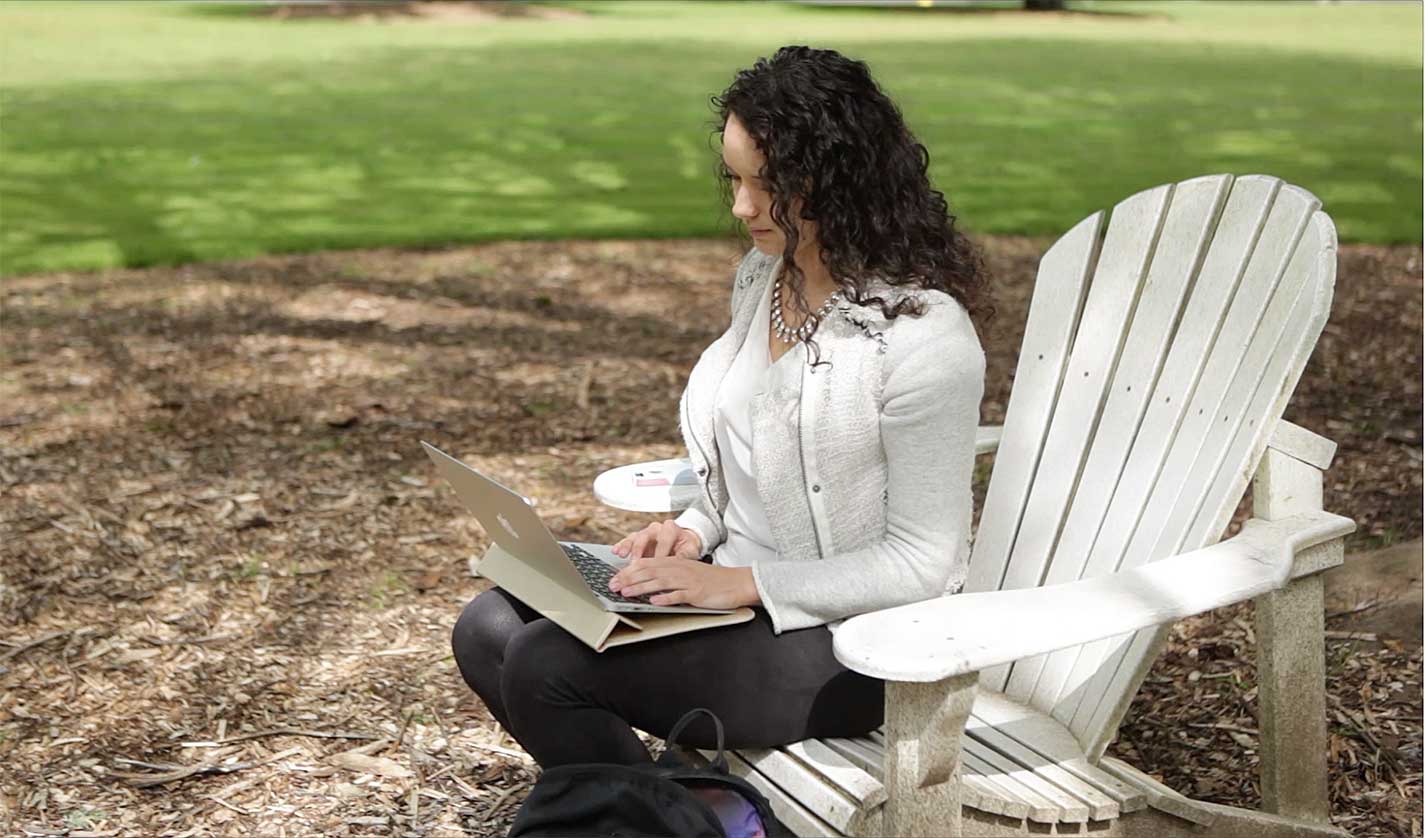So when her peers warned her about the rigors of Willamette’s BA/MBA program, she ignored their doubts and enrolled anyway. Two years later, she’s landed her first corporate job months before graduation.
“When people told me I’d struggle, I wanted to prove them wrong. I took their concerns as a personal challenge,” she says. “Willamette really pushed me to understand what I wanted to do and go get the skills to do it.”
Going Green
At Willamette, Gallup immersed herself in women’s golf, forged a new family with Alpha Chi Omega and declared a major in environmental science.
But she wanted to do more. So with the help of staff and faculty, Gallup identified projects that aligned with her core mission: promoting sustainability.
For her senior thesis, she measured the greenhouse gases and electricity used to operate Willamette’s Athletics Department. The department’s carbon footprint was minimal because of its size, but Gallup shared tips for how it could save even more energy — namely by coordinating out-of-town travel by different athletic teams.
Through an internship, Gallup helped a San Francisco hotel chain “green” its buildings, such as by swapping out florescent light bulbs with LED ones. She also helped it successfully pursue Gold LEED certification — a global mark of quality and achievement in resource-efficient building.
Partnering with another student, Gallup helped Willamette’s Sustainability Institute create a GHG emissions inventory protocol to measure the greenhouse gases produced on campus. By understanding which buildings and departments use the most resources, university officials can take steps to fix any potential problems.
Now Gallup serves on Willamette’s Sustainability Advisory Board, which is invested in advancing sustainability initiatives.
Through her role, Gallup hopes to help the university adopt a sustainable office-supply procurement policy. Small steps that could have a big impact include buying only remanufactured toners and consolidating items into orders of $50 or more to reduce shipping materials and gas consumption for deliveries.
“When we get stuck in habits, they can be hard to break,” Gallup admits. “But we need to look at our current processes and see if better options are available. This is all about changing behavior.”
Next Steps
As one of her MBA professors, Elliot Maltz knows how dedicated Gallup is to sustainability. Describing her as passionate and hard working, he says she epitomizes the type of student the MBA program is designed to help.
“We have a highly experiential program here, where we give our students lots of opportunities to make mistakes in a safe environment,” he says. “Lettajoe has a drive and a willingness to learn. She’s a leader in her class, and she doesn’t do anything half way.”
At Willamette, students can pursue a dual-degree program to earn both their undergraduate and graduate degrees on one campus — and in less time. Students take six years to earn their BA and JD, five to earn their BA and MBA.
For Gallup, the program gave her an extra year of earning power and chances for better jobs earlier in her career.
She credits the MBA program for teaching her teamwork, technical skills in finance and operations, and how to communicate effectively. These lessons helped her secure her first corporate job at Liberty Mutual Insurance in Portland.
Hired as a risk control consultant, Gallup will visit properties insured by her company to evaluate risk management programs and safety procedures. She begins her job after graduating in May.
“I’m really excited,” she says, adding that she hopes to one-day work on sustainability initiatives for a large company.
“School was a chapter, and I’m rushing to read the end of it. I want to start taking all the things I’ve learned, applying them and making a difference.”


